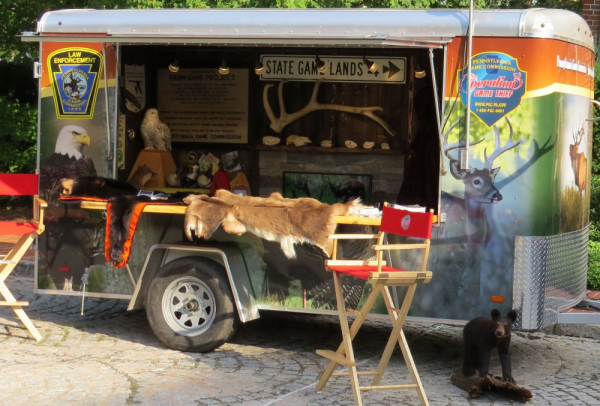Adventure
Conservation Mashup Means Poachers Pay in Cash, Time … and SHAME!

International Wildlife Crimestoppers, Inc. (IWC) has joined the Boone and Crockett Club as a research and media partner in their coordinated efforts against poaching. Through the strategic partnership, the Club is supporting conservation law enforcement and will help IWC promote and continue providing specialized law enforcement equipment to officers. In addition, one key part of this outreach includes IWC’s Wall of Shame trailers, traveling exhibits that educate both adults and our nation’s youth about the differences between poaching and legal, ethical hunting. As part of the partnership, IWC will also be actively engaged in the Club’s Poach & Pay initiative supporting the development of communications materials and connection to conservation officers.
“For over one hundred years, conservation of our nation’s resources has come through the dedication of ethical hunters abiding by the regulations put in place to maintain sustainable wildlife resources. Conservation officers have been essential to that model by working to identify and stop poachers—but their job is incredibly hard. The Boone and Crockett Club is excited for this collaboration with International Wildlife Crimestoppers as the Poach & Pay project develops. Strategic partnerships like this one will help to increase successful prosecution of poachers, and make sure the penalties fit the crimes with fines and restitutions that support state agency wildlife conservation efforts,” commented Club President James F. Arnold.
Since it was founded by Theodore Roosevelt in 1887, the Boone and Crockett Club has focused on conserving wildlife using scientific management principles, while also promoting the highest ethical standards of Fair Chase® and sportsmanship in hunting. The organization has played a critical role in enacting many of the conservation laws that now serve as the foundation for wildlife management in this country. Protecting wildlife resources in North America is an ongoing mission for conservation law enforcement officers and International Wildlife Crimestoppers, Inc. IWC members consist of conservation law enforcement agencies and conservation minded organizations with the primary responsibility to enforce laws and regulations regarding the protection of fish, wildlife, and habitat within their state or province and promote sustainable conservation models for the future. Currently, the association is made up of U.S. states and Canadian provinces with a diverse executive board consisting of conservation law enforcement officers from across the country.
“Our Wall of Shame trailers have proven to be effective in educating young and old alike on the very real problem of poaching and to show newcomers to outdoor sports that there is a right and wrong way to enjoy nature’s offerings,” said IWC Executive Director Lewis Rather. “By partnering with the Boone and Crockett Club and their Poach & Pay program, we hope to increase the detection of poaching and the prosecution of poachers, which will benefit wildlife managers and our wildlife resources.”
In 2016, the Boone and Crockett Club conducted research on the state restitution systems for illegal take of big game species through Phase I of the Poach & Pay project. The research found that 42 states currently have restitution programs, and many include trophy restitution—but there is little apparent standardization of restitution costs, either within or among states. In addition, surveyed state conservation officers believed that poaching penalties accurately reflect the crime and current values of illegally taken animals, however the survey found that the judicial system often was the primary obstacle in convicting and punishing poachers. The next phase of the Poach & Pay research will assess the barriers to prosecuting wildlife crime, evaluate the detection rate and conservation impacts of wildlife crime, describe the motivational factors and potential deterrents that influence poachers, and provide solutions to improving prosecution and conviction rates, as well as a defensible framework for poaching penalties.
-

 Adventure4 weeks ago
Adventure4 weeks agoSHOT Show 2026: The Most Important New Outdoor Gear Announced in Las Vegas
-

 Gear1 month ago
Gear1 month agoSuppressors in the Outdoors: Safety, Legality, and Ethical Use in 2026
-

 Camping & Survival3 weeks ago
Camping & Survival3 weeks agoWinter Road Status Checks Before You Access Public Land
-

 Fishing2 weeks ago
Fishing2 weeks agoWinter Fishing Safety: Ice, Cold Water & Abort Criteria
-

 Gear5 days ago
Gear5 days agoSpring Turkey Hunting Preparation: Safety, Scouting Checklist, and Shotgun Patterning






